Are you feeling overwhelmed by a toxic work environment and contemplating resignation? It's never easy to make the decision to leave a job, especially when the issue stems from a difficult supervisor. Recognizing the impact of a negative atmosphere on your mental well-being is crucial, and it's important to navigate this transition with care. If you're ready to take a step toward a healthier work life, read on to discover a template for crafting your resignation letter.
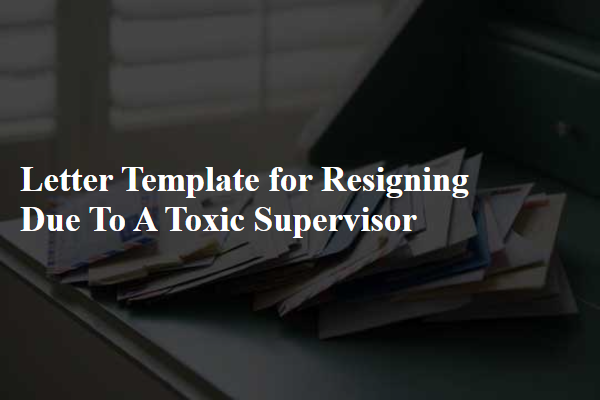
Professional opening statement
Experiencing a toxic work environment can significantly impact an employee's well-being and productivity. A toxic supervisor often fosters an atmosphere of intimidation, undermining, or hostility, leading to increased stress levels among team members. Reports show that workplaces with such supervisors can experience higher turnover rates, sometimes up to 50% within a year. Numerous employees cite mental health concerns as a primary reason for leaving, indicating that nearly 75% of employees consider their manager's behavior a critical factor when deciding to resign. Addressing the issue often requires substantial organizational change, but for individuals, the best solution may be to seek healthier work environments conducive to professional growth and mental well-being.
Clear mention of resignation
Resigning from a position due to a toxic supervisor can be a significant decision impacting professional life. Crafting a resignation letter that clearly communicates this intention while maintaining professionalism is crucial. Express feelings about the work environment influenced by the supervisor's behavior, describe how it affects personal well-being and job performance, and firmly state the intention to resign from the specific position in the organization. Highlight appreciation for the opportunities provided by the role, despite the unfortunate circumstances, and ensure to mention the formal last working day, adhering to any contractual notice period.
Diplomatic reasoning for departure
Working under a toxic supervisor can create a challenging environment that significantly impacts employee morale and productivity. Toxicity often manifests through negative behaviors such as bullying, micromanagement, or public criticism, eroding trust within workplace dynamics. Employees may experience heightened stress levels, leading to mental health issues and decreased job satisfaction. Long-term exposure to such conditions can result in increased turnover rates in organizations, as individuals seek healthier work environments that foster growth and collaboration. One effective approach for employees considering resignation due to a toxic supervisor involves articulating their departure in a diplomatic manner, emphasizing personal and professional growth rather than focusing on negative experiences with management. This allows for a graceful exit while preserving relationships and maintaining professionalism.
Effective last working date
Transitioning away from a toxic workplace environment can be a crucial step towards personal and professional well-being. Resigning due to a toxic supervisor involves careful consideration of the timing and communication involved. In this scenario, ensuring the effective last working date is clearly outlined is essential for a smooth exit. Safeguarding your mental health may require addressing the impact of the supervisor's behavior on job satisfaction, performance, and overall atmosphere within the workplace. Citing specific experiences, if appropriate, can lend weight to the decision while maintaining professionalism in the resignation letter. Notice periods, typically two weeks to one month depending on company policy, must also be adhered to for a respectful departure, acknowledging the contributions made during the tenure. Additionally, it is wise to retain copies of important work-related documents and contacts before leaving the organization.
Expression of gratitude and positivity
Resigning from a position impacted by a toxic supervisor can be a challenging experience. While it's essential to maintain professionalism, it is equally important to express gratitude for positive aspects of the job. Recognizing constructive elements at work, such as collaborative colleagues or valuable skills gained, can help maintain a sense of positivity in your resignation. Expressing appreciation, even in difficult circumstances, leaves the door open for future networking and opportunities, reinforcing a professional demeanor. In challenging work environments, seeking a healthier workplace dynamic becomes paramount for personal well-being. Recognizing the need for change can lead to growth and new opportunities, emphasizing the importance of self-care and establishing boundaries.
Letter Template For Resigning Due To A Toxic Supervisor Samples
Letter template of resignation because of an unhealthy workplace relationship.
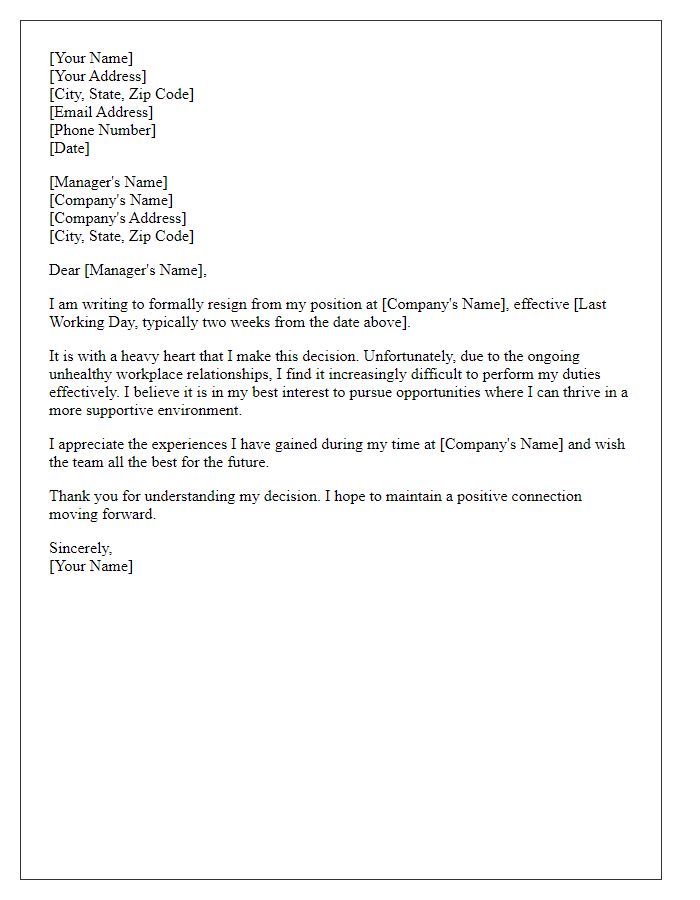
Letter template of resignation stemming from a negative supervisory experience.
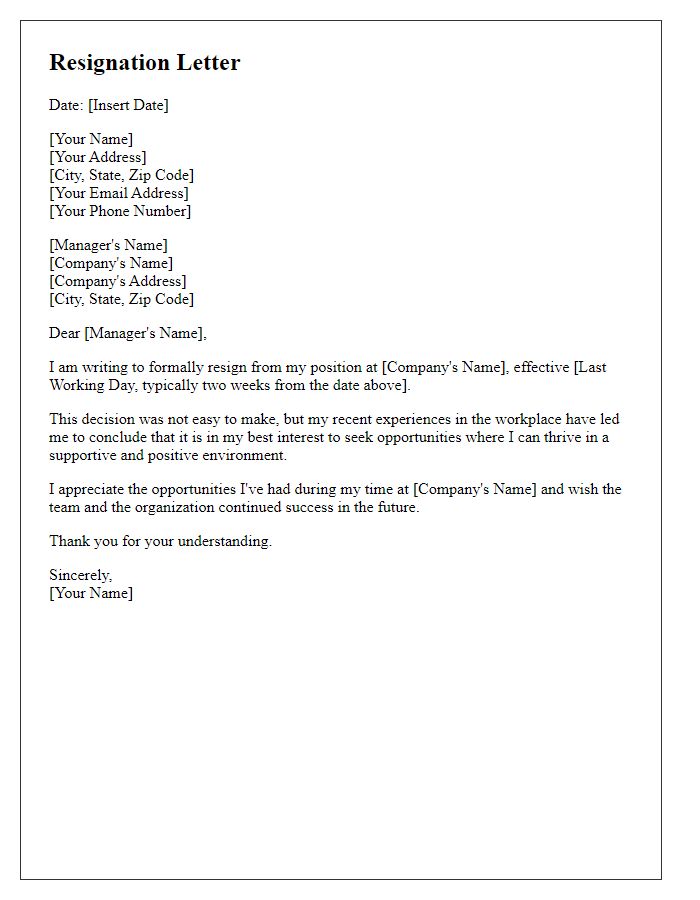
Letter template of resignation in response to a detrimental leadership style.
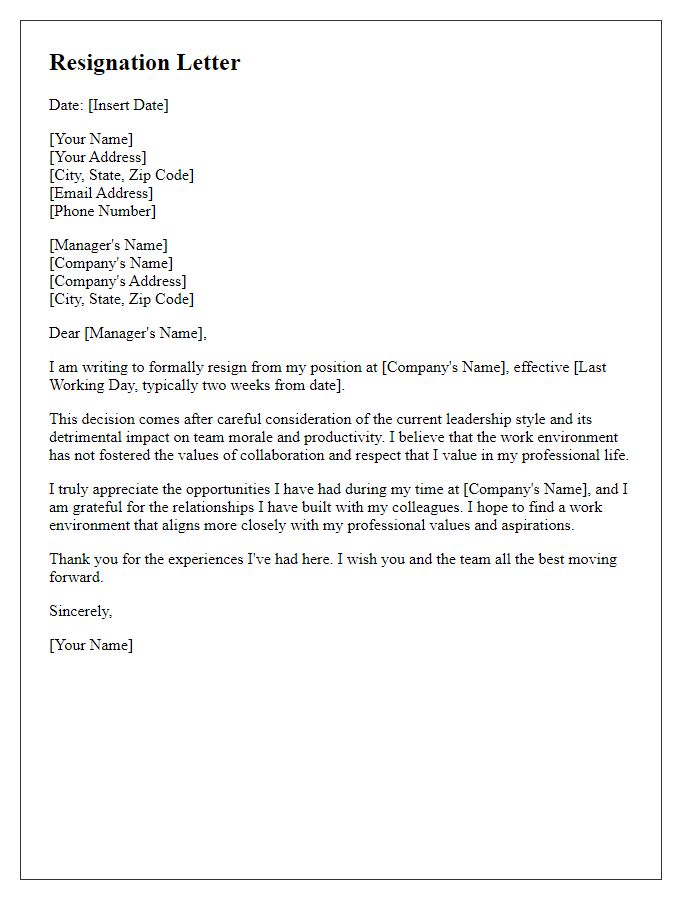
Letter template of resignation owing to lack of support from supervisor.
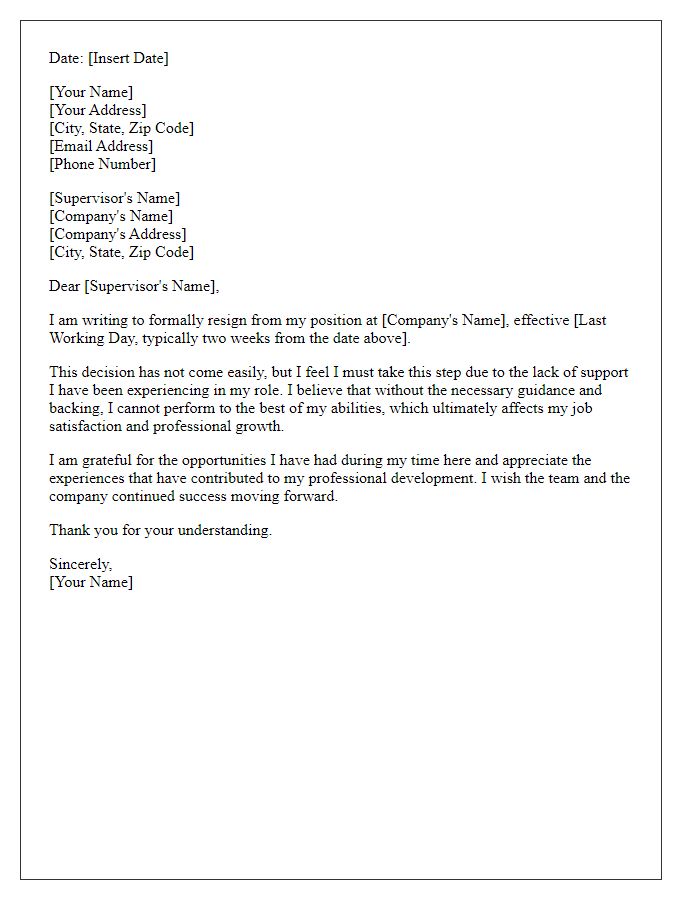

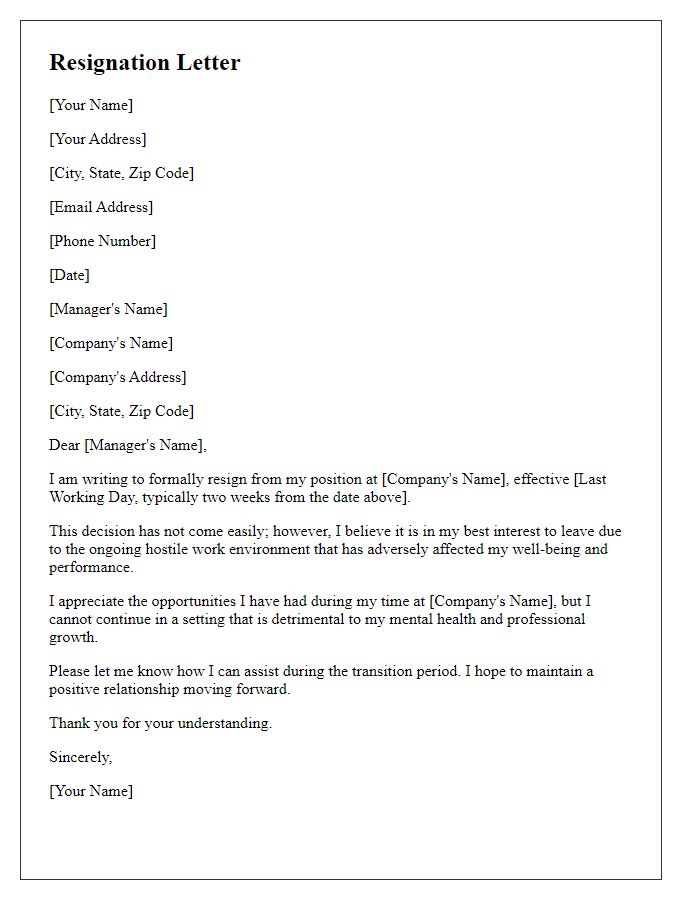
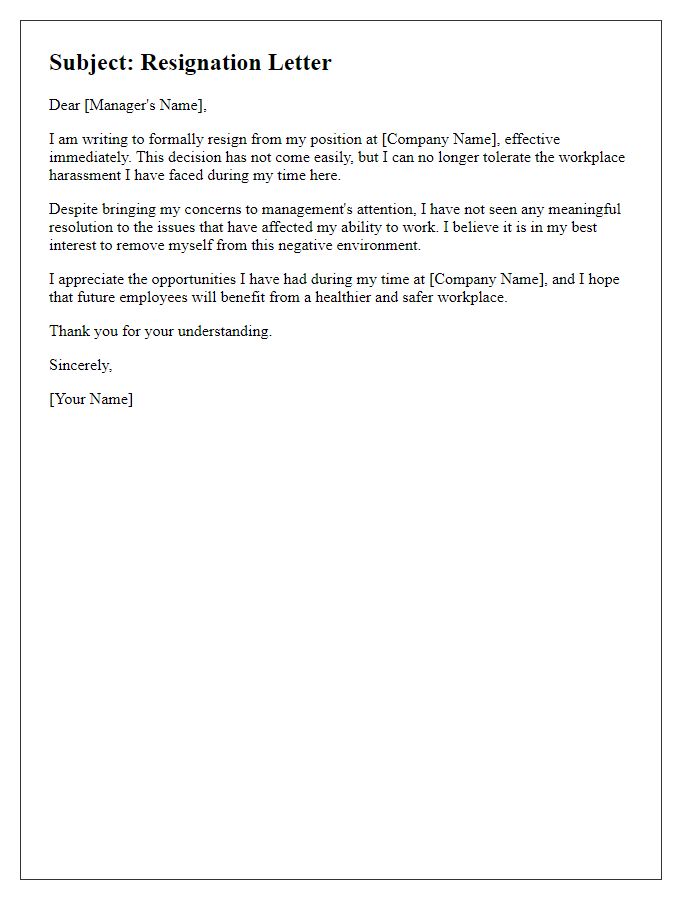
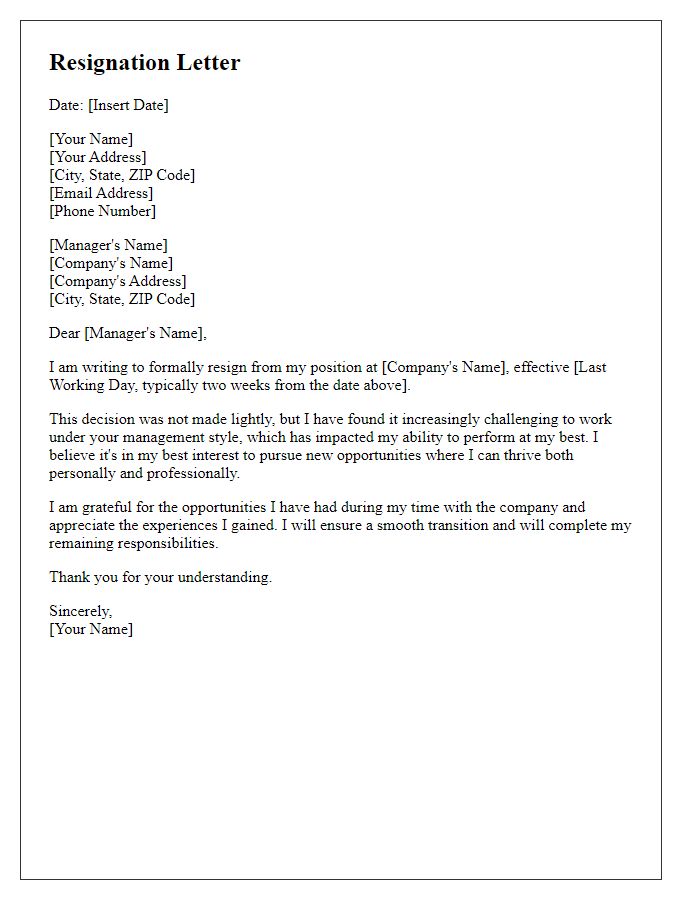
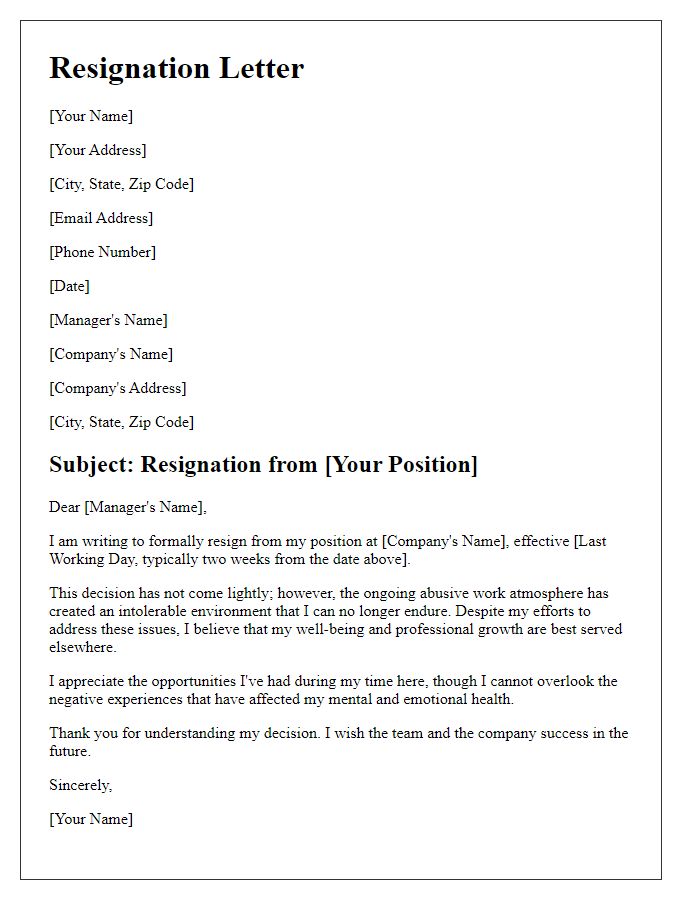
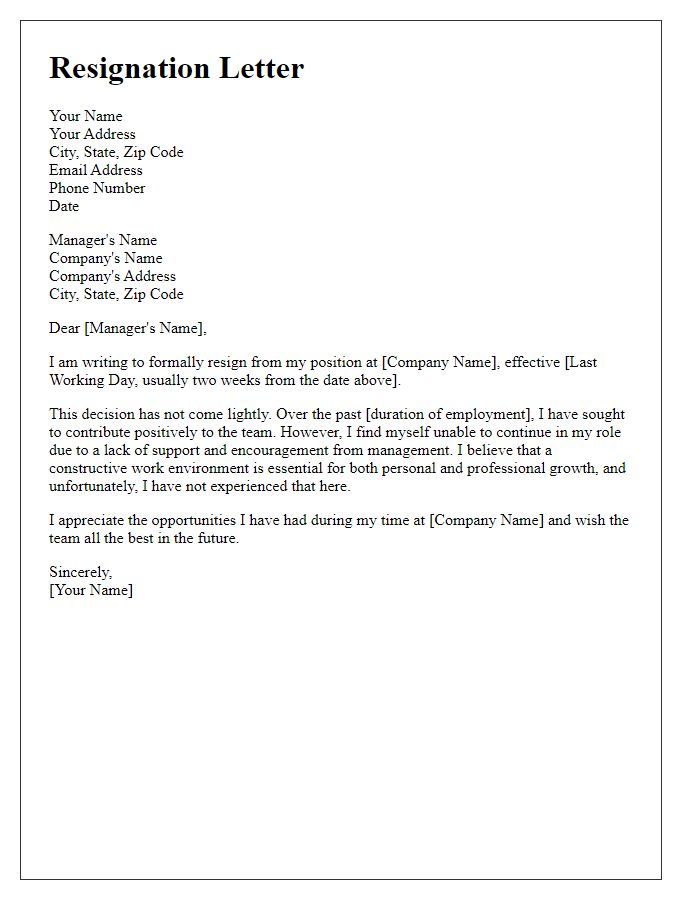
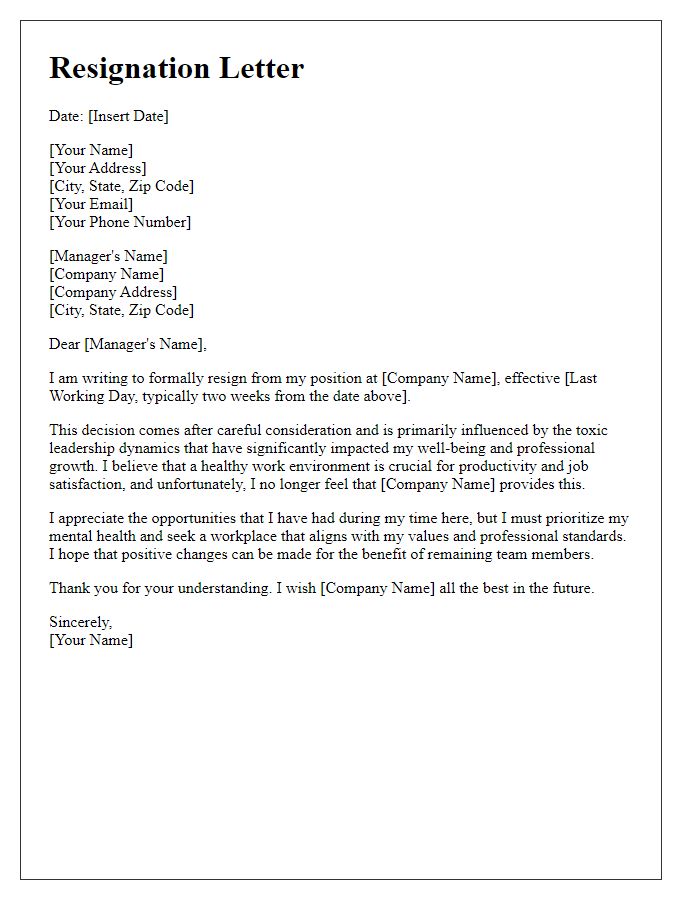

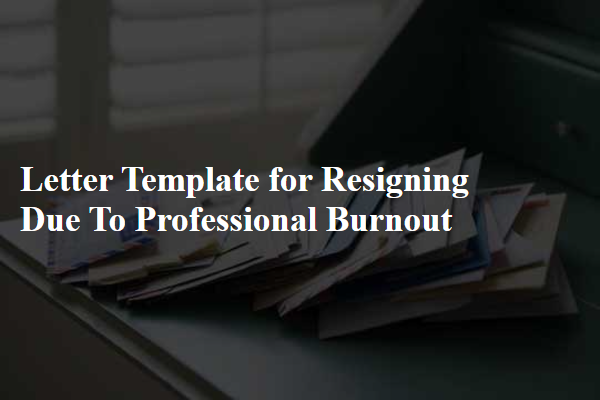
Comments